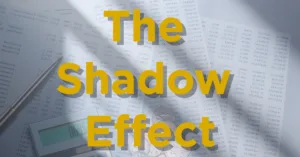Are vacation homes a good investment? Maybe.
Whether or not you should buy a vacation home as an investment property is a slightly involved question. It’s one thing to buy a vacation home just for fun, fully acknowledging that it’s for personal use with no expectation of financial or tax benefits. But if you want that vacation home to actually serve as an investment, there are a few things you’ll want to understand first.
Classifying a Vacation Home as an Investment
If you plan to rent your vacation home and use it as an investment property, the IRS sets clear boundaries. To have it classified exclusively as an investment, you must limit your personal use to no more than two weeks per year. You can, of course, use it more than that, but once you do, you’ll need to prorate how much of the property’s use is personal versus investment. The portion you use personally won’t qualify for deductions like mortgage interest, property taxes, or insurance.
In short:
- Two weeks or less or personal use means full investment classification.
- More than two weeks of personal use means partial deductions based on time allocation.
Keeping your personal stays limited allows you to maximize the property’s investment and tax advantages.
The Short-Term Rental “Loophole”
One of the biggest opportunities investors explore with vacation homes is the short-term rental classification. You may have even heard the phrase “short-term rental loophole” circulating online. It refers to a specific IRS distinction that can create major tax advantages.
Here’s how it works:
If your vacation rental averages stays of seven days or less, it’s considered an active business instead of a passive investment. That means it can be treated more like a business than a traditional rental property.
When a property is classified as an active short-term rental, you can claim active losses against your other active incomes, such as your salary or business income. Essentially, it gives you access to the tax benefits of being a real estate professional without needing to meet the full hour requirements that most investors can’t reach if they have full-time jobs.
This is often where investors use a cost-segregation study – a detailed breakdown of the property’s components that allows you to accelerate depreciation. Those paper losses can then be applied against your active income, reducing your tax bill by a substantial amount.
That said, this approach takes planning and involvement. You’ll need to manage the property yourself or stay closely involved to qualify. But for those willing to put in the effort, the tax benefits can be significant.
If you prefer a hands-off approach, you can still hire a property manager and treat the property as a passive investment. You’ll still receive traditional deductions, just without the expanded “active” benefits.
Appreciation Potential
Even if you decide not to rent your vacation home – or only rent it occasionally – it can still serve as a worthwhile investment if you choose the right market.
Certain areas in the US have seen tremendous appreciation as more people look to live near beaches, lakes, and mountain destinations. Areas like the Poconos, coastal towns, and other high-demand vacation regions have surged in value as both investors and full-time residents compete for limited supply.
To benefit from appreciation, focus on markets that:
- Haven’t already peaked in value or popularity.
- Show signs of long-term population or tourism growth.
- Have new infrastructure or development plans on the horizon.
By purchasing in a market poised for future demand, you can enjoy your vacation home while still benefiting from value growth over time.
Expenses
Owning a vacation property comes with risks that can’t be ignored – especially when it comes to insurance and taxes. Many vacation homes are located in areas vulnerable to natural disasters or weather-related risks.
Insurance costs have risen dramatically across the US in the past few years, but especially in high-risk markets. For example, coastal areas like Florida face higher premiums due to hurricanes and flood risks, while mountain regions in western states are increasingly affected by wildfire insurance costs. When evaluating a property, it’s important to understand what those premiums might look like today and how they could increase over time.
Property taxes are another key factor. Some markets have seen large reassessments as property values climb, leading to steep tax hikes. Florida, for example, has also experienced this in recent years. Before purchasing, research how local tax policies and insurance regulations may affect your long-term holding costs.
Final Thoughts
Vacation homes can be a meaningful part of your investment portfolio, but only when you understand how to structure and manage them correctly. Limiting personal use, taking advantage of the short-term rental classification, and buying in a market with strong appreciation potential can all turn a vacation property into a true financial asset. At the same time, rising insurance and tax costs make it important to run the numbers carefully before buying.
Many investors we work with appreciate exploring opportunities that align with both their personal and financial goals. If you’re considering purchasing a vacation home as an investment in Pennsylvania or Maryland, contact us to discuss how to structure your investment in a way that fits your strategy and maximizes your return.





